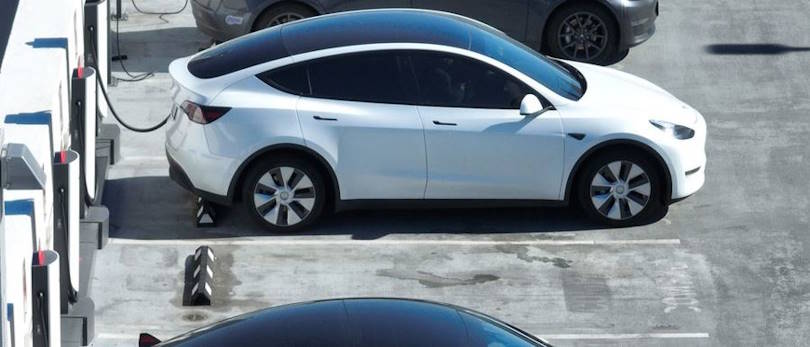
(Photo by Justin Sullivan/Getty Images)
The Terrible News For Electric Vehicles Keeps Rolling In
By David Blackmon
The troubling information related to electric vehicles continues to mount as automakers around the western world grow increasingly worried about a tepid market response and whether the fountain of debt-funded government subsidies can keep flowing long enough to allow their products to grow to societal scale.
If the rash of new negative stories over just the past week is any indication, U.S. and European carmakers have good reason to worry.
First, there was an announcement from the British automobile company Aston Martin–whose cars have become legendary due in part to their 61-year association with the James Bond film franchise–that it will delay the introduction of its initial electric model until at least 2026. Speaking to journalists, Executive Chairman Lawrence Stroll said the decision was mainly attributable to the same falling demand in the U.K. which has also characterized the U.S. market over the last year.
“The consumer demand (for BEVs), certainly at an Aston Martin price point, is not what we thought it was going to be two years ago,” Stroll said.
“What we are feeling,” he said, “is there are people that still want some electrification to drive around the city for five, or 10, or 15 miles but still have the sports car smell and feel and noise when you get onto the auto routes.”
Aston Martin customers, however, can still experience that sports car “smell and feel and noise” by purchasing the company’s highly successful line of hybrid cars, which Stroll said would remain the mainstay of its low-emission vehicle fleet. To consumers, this makes all the sense in the world, though we can be sure the climate-alarm community will be furious.
Next up was another story out of the U.K., this one detailing a major recall of almost 2,000 battery electric buses ordered by government regulators. The Daily Mail described the recall of Alexander Dennis Enviro200 and Enviro400 single- and double-decker buses that are in widespread use in cities like London and Manchester as “Britain’s ticking time bomb.” That seems appropriate since the recall was ordered over concerns that the China-made batteries used in the buses could spontaneously combust when left unattended.
A spokesperson for Alexander Dennis told MailOnline that the company was working on the problem but did not yet have a solution in-hand. Given that London alone has almost 500 of the buses – which cost around $450,000 apiece – in use, any long delay could become highly problematic for city commuters and tourists who use them.
As if all this news weren’t damaging enough to the EV image, the Wall Street Journal ran a March 3 story on a new study that found that electric cars emit significantly more particulate matter than do newer-model gas-powered cars, which are equipped with particulate filters.
California’s government bases its aggressive ban on purchasing new gas-powered cars by 2035 in large part on a claim that moving to EVs will help it cut particulate emissions. The problem with this claim is that gas-powered cars currently account for just 1% of all fine particulate matter in the state, and that the modern particulate filters cut emissions to below 1/1,000th of a gram per mile driven.
Recent studies by Emissions Analytics find that, “comparing real-world tailpipe particulate mass emissions to tire wear emissions, both in ‘normal’ driving, the latter is actually around 1,850 times greater than the former.” This is a big problem for EVs due to their far higher weight than comparable gas-powered models. This added weight causes their tires to wear much more quickly, significantly increasing their per-unit rate of particulate emissions.
Mind you, we are talking about real pollution of the air and water here, not microscopic increases in the human contributions to the amount of atmospheric carbon dioxide, literal plant food which forms the very basis for all life on Planet Earth. Governments all over the world spent decades invoking laws and regulations designed to remove these particulate emissions due to their measurable and clearly identifiable health impacts.
What an amazing unintended consequence it would be if those decades of extraordinary success in cutting real pollution were to be reversed by the globalist obsession over plant food.
David Blackmon is an energy writer and consultant based in Texas. He spent 40 years in the oil and gas business, where he specialized in public policy and communications.
From dailycaller.com